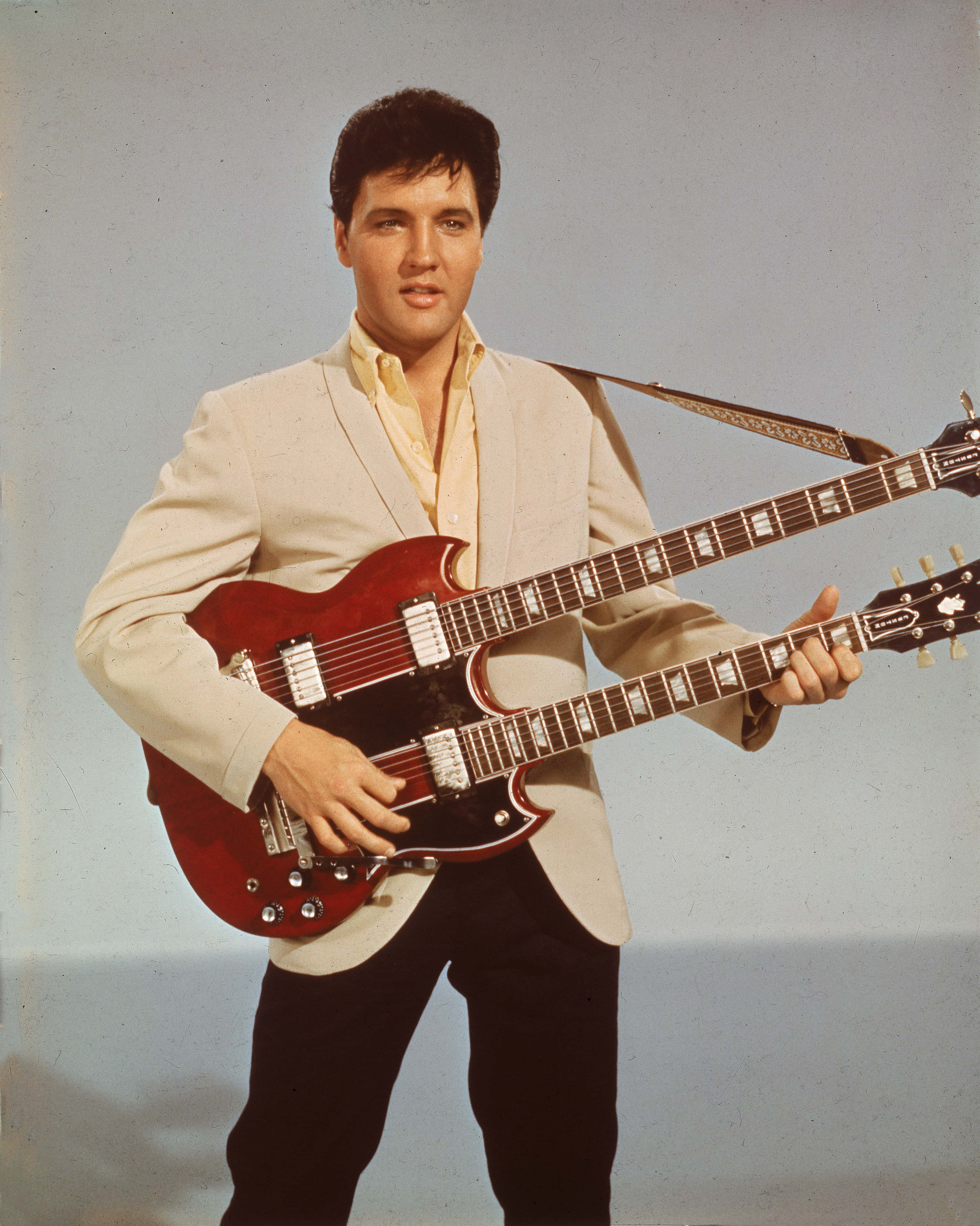Elvis Week 2020: How Jerry Lee Lewis' music took him on a different path despite similar origins with Presley

We are in the middle of Elvis Week and we can't talk about the legend of such a groundbreaking artiste without taking a look at one of his most notable competitors. The King of Rock 'n' Roll certainly proved to be a pioneer of an entire genre that would pave the way for a multitude of uptempo music for decades to come, but what about his longtime friend and contender for the rock 'n' roll king title, Jerry Lee Lewis?
Both Elvis and Jerry were born into poverty, raised in a background of Christianity and proven talented musicians at a young age. Parallels in their timeline started on the very day Lewis was born, just 10 months after Elvis' birth. Additionally, while Elvis began laying out his portion of cement on the proverbial foundation of rock music in Sam Phillips' Sun Studio, Jerry Lee Lewis would also sign up with Sun Records just two years later in 1956.
In an interview included in the DVD issue of 'Elvis: The Great Performances', Jerry explained the life-changing decision he made that year to become a solo musician under the label. “I was reading a lot of magazines about Sam Phillips and Sun Records… so I told my dad, this is the man we need to go see. And we did. We drove down from Ferriday into Memphis and pulled up in front of Sun Records," he explained.
"I came in and auditioned for Jack Clement, who said I could never make it playing the piano. He said rock 'n' roll was out, cause Elvis had it all tied up. He said I could forget that. Well, I said, 'I don’t think so.' I said, 'I'm a hit.' He said, 'They all say that, son.' I said, 'I'm not all. I'm different'."

While Elvis was busy in the studio in 1954 before Jerry's entry into Sun Records, Jerry played piano at night in a band at the Mississippi club, Wagon Wheel. "We played everything, man," recalled band leader Johnny Littlejohn. "We played everything from 'The Wild Side of Life' and 'Slippin' Around' to 'Big Legged Woman' and 'Drinkin' Wine, Spo-Dee-O-Dee'. Hell, we did 'Stardust'. Whatever we did, we did it honky-tonk style, hard-core barroom style."
With both musicians blowing the minds of youth from the mid decades of the 1900s, Jerry's rock description would differ from Elvis. He has been described as "rock & roll's first great wild man and one of the most influential pianists of the twentieth century," and his nickname The Killer stemmed from his school years. "That's what all my friends called me," he explained years later which was shared in Nick Tosches' biography 'Hellfire'. "I hated that damn name ever since I was a kid, but I been stuck with it. I don’t think they mean it killer like I'd kill people. I think they meant it music'ly speakin'."
The most memorable interactions between Elvis and Jerry was the conception and fruition of the "Million Dollar Quartet" in 1956. As a Carl Perkins recording session at Sun was finishing, Elvis dropped by pay a visit to Phillips. That day, Perkins was backed by Jerry Lee Lewis on the piano. The recording session then turned into an impromptu jam session with the group singing and playing together, which Phillips recorded on the tape-recorder.
The iconic jam session later became known as the "Million Dollar Quartet" session and is considered a seminal moment in rock and roll history. 'The Million Dollar Quartet' was first released in Europe in 1981 and featured 17 tracks. A few years later more tracks were discovered and released as 'The Complete Million Dollar Session'. In 1990, the recordings were released in the United States as 'Elvis Presley — The Million Dollar Quartet'.

In years to come, Elvis set the world ablaze with his fiery stage persona and energetic music while Jerry's wild music sent him on a different path. Both artistes had their own demons but Jerry's turbulent personal life was hidden from public eye until a 1958 British tour where Ray Berry, a news agency reporter at London's Heathrow Airport learned about Lewis' third wife, Myra Gale Brown.
The publicity caused an uproar once it was discovered that she was Jerry's 13-year-old first cousin once removed while he was 22. The tour at the time was canceled after only three concerts. Jerry's career also slowed down after his contract with Sun ended in 1963. He would go on to sign with Smash Records, where he made a number of rock recordings that received lukewarm attention.
The early '60s would see Elvis continuing to produce US No. 1 hits such as 'Are You Lonesome Tonight' and 'Surrender'. In late 1961, the majority of his singles were released to promote his films and their soundtrack albums. Other hit singles around the time also included 'Can't Help Falling in Love', 'Return to Sender', 'Bossa Nova Baby' and 'Kissin' Cousins'.










